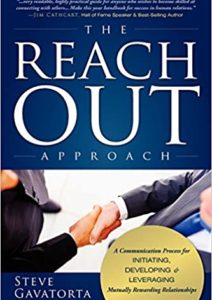Sell Better With Behavioral Analysis Tools
There are many different behavioral and value analysis tools out there, like the Meyers Briggs and Enneagram tests, emotional intelligence tools, and others. Many people deem these assessments as helpful, both in personal and professional realms, but they can be truly invaluable when it comes to creating trust with your clients and building relationships with prospects.
Building Trust
Whatever you do, be it leadership, sales, management, or marketing, trust is the most foundational part of any relation. In sales, if your customers don’t trust you, they’re not going to open up and share their needs, and if they’re not sharing their needs, you can’t articulate the ways that your product or service can solve their needs, and you’re not going to be able to align relevant solutions. Many of these assessments are about building trust through effective communication and understanding different behavior styles.
Know Yourself, and Your Client
Many people use-value and behavior assessments in order to understand themselves, but they can also be very helpful in getting to know your clients. The information that these assessments provide can be crucial for giving you information about how both you and your clients talk and communicate, behave, respond to conflict, get motivated, and make decisions. The ability to understand ourselves and our styles, as well as known who we’re talking to and their styles, will help you build better connections and sell better.
Better Brains
There are two important parts of the brain, the limbic system, and the cortex. The limbic system is where our emotions are. As babies, we function largely out of the limbic part of the brain, where our response to an adverse situation is going to be strictly emotional, and trigger a freeze, flight, or flight reaction. This served us well when we were cavepeople and dinosaurs were on their way to attack, or when we’re a baby and we have a basic need that needs to be met. But we have evolved since the cave people days, and we’ve grown up since our time as babies. While emotions are beneficial and important, if the limbic system is too much in control, it can cause problems. The other part of the brain is the cortex, which grows and evolves through learning and experience. It’s the rational part of the brain that uses reason, rational thinking, problem-solving, and other more complex tasks. During situations that are stressful, like a big sales call, or a meeting with a major client, you want to rely on the cortex part of your brain because you can be most productive and rational. This is important for selling better because the awareness of these two parts of the brain can help you reframe more emotional thoughts and responses to more logical and process-oriented responses.












Comments